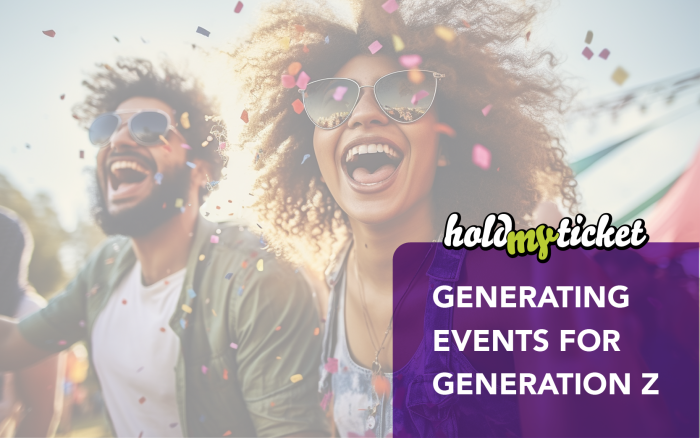Engaging Gen Z in the Event Space: Strategies for Organizers and Promoters

Connecting with ticket buyers and event attendees across all demographics is essential when it comes to maximizing your ticket sales and profits.
Adapting how you plan and promote events to attract younger people can be really rewarding. About 51% of Gen Z go to live events every few months, which is more than the 44% of millennials and much more than the 19% of people who are 55 and older.
Event organizers can bank on Gen Z's regular event attendance by adding certain things to their marketing and planning, like being genuine, using technology, and making things easy.
Cut Through the Noise by Prioritizing Transparency and Essential Information
More than anything Gen Z cares about authenticity and transparency. Focus on being real, honest and open. Gen Z doesn’t like too much unnecessary info, so keep event ads straight to the point. Make sure your marketing and promotion are clear and show exactly what to expect, using pictures to share your main messages quickly. Your event info, like events pages, descriptions, and posters, should clearly explain who, what, when, where, and why. Tell them why the event matters, what they'll get from it, how much it costs, and any health or safety rules. Be honest about any sponsors or partners since Gen Z doesn't like sneaky tactics. Also, keep them updated during the event using their favorite online ways, and keep messages short and relevant. Make sure to consider accessibility of all sorts to avoid a faux pas that could result in your event’s online infamy.
Leverage Digital Tickets and Mobile Engagement
Using digital tickets is essential, not just handy, for attracting Gen Z to events. Etickets, along with mobile apps or online platforms that offer live updates, allow for networking, and provide extra content about the event, really appeal to Gen Z's love for smooth, digital-first experiences. These digital tools also act as a central place for all information related to the event, cutting down on the need for paper and supporting Gen Z's growing interest in protecting the environment. This approach matches their preferences for efficient, tech-savvy solutions and shows understanding of their environmental values.
Smart Use of Social Media, Moving Beyond the Use of Influencers
While social media is still key for reaching Gen Z, the approach needs updating. Instead of mainly using influencers, whose impact and trustworthiness are dwindling with Gen Z, focus on creating content they'll want to share. Offer behind-the-scenes glimpses, encouraging content created by users, and letting attendees help tell the event's story. Now, it's more about working with micro-influencers and real supporters of the brand who may have fewer followers but those followers are more dedicated and active. Working with these influencers can make your event's promotion feel more real. Also, letting all attendees share their own true experiences online can naturally extend your event's visibility. It's important to keep using platforms like Instagram, TikTok, and Twitter, but make sure the content is not only genuine and engaging but also offers real value, not just ads.
Adapt Your Selections
Understand that Gen Z wants something different. Instead of traditional party scenes, they're interested in entertainment that fits into their wellness lifestyle. Add wellness activities to your events and use digital tools to match Gen Z's preferences, making your place feel forward-thinking and welcoming. Since Gen Z isn't as into alcohol, offer unique non-alcoholic options like mocktails and craft sodas. Enhance the experience with interactive features like virtual reality and special theme nights. By emphasizing the social and cultural sides of your events, such as encouraging community involvement and appreciation for the arts, you'll attract those looking for deeper connections. Attracting Gen Z to events means being transparent, innovative online, and real on social media. Offer straightforward information, use digital tickets and apps, and make social media more engaging and authentic. This approach helps build a real connection with Gen Z. Aim to craft not just events, but experiences that reflect their values, tastes, and digital priorities.
Get more insights and tips by checking out all our resources.
